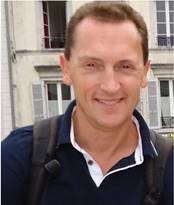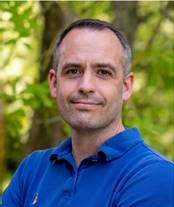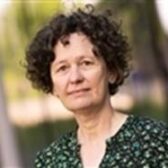Keynotes

Steve is a Professor of Physical Geography and Associate Dean for Research of the Faculty of Environmental and Life Sciences, University of Southampton. His research interests are centred on understanding the relationships and interactions between flow and sediment transport processes, with particular expertise in riverbank erosion, and a focus on vegetation-mediated environments and large river morphodynamics, including how morphological adjustments in these environments affect flood hazard and risk.

Julian is a Professor of Physical Geography at University of Southampton and director of the Environmental Sensing @Southampton research and consultancy unit (ES@S; www.esas.soton.ac.uk). Julian’s research interests centre on understanding how geomorphic systems respond to environmental change, using process-form monitoring, modelling and remote sensing approaches. He is an expert in the collection, analysis and interpretation of high resolution morphological and process data.
Mining the Mekong: The physical and human consequences of sand extraction.
Professors Steve Darby and Julian Leyland
The world’s insatiable thirst for sand is growing. Global demand for sand is predicted to rise from 30-40 Gt/yr (twice the amount of sediment transported globally by rivers) in 2020 to 60-80 Gt/yr by 2060. Here we focus on sand extraction within one of the world’s largest river basins and delta systems – the Mekong. Drawing on over a decade of research on the Mekong, we paint a picture of an anthropogenically stressed river and delta as a result of climate change, upstream damming, anthropogenic subsidence, and – especially – intensive sand mining. Through the use of a suite of flow, sedimentological and channel morphological field measurements, coupled with geotechnical modelling, we present results linking severe sediment deficits to intense river-bed erosion and a substantially increased risk of dangerous riverbank failure.
We have also combined model predictions and satellite-based observations of riverbank erosion with asset value maps to determine the economic losses associated with mining-induced erosion, providing a way to constrain one of the key ‘externalities’ associated with mining the Mekong. Our risk analyses are now being used to determine the extent to which currently stable banks are close to reaching an instability threshold, to help define safe limits for future sand mining. Finally, we’ll draw our research together with a preview of how we hope to use the various strands presented within a novel Digital Twin framework to identify and better understand the hidden physical, cultural and economic value of sand within a typical Mekong riverside community.

Tine Béneker has spent the past twenty five years conducting research into future-oriented education, the global dimension in geography education, (world)citizenship and education, and visions of the future and global consciousness among young people. Tine is Vice Dean Education of the Faculty of Geosciences and is also a member of the Board of Studies of the Graduate School of Teaching. Her teaching focuses on the two-year teacher education Master’s programme Geography: Education and Communication. More recently, she has been a partner in the international geocapabilities project and published on powerful knowledge and curriculum making in geography education.
Powerful geography for schools: the perspective of academic geographers
The trigger for this story is an imminent curriculum renewal project in Dutch (geography) education. In preparation for this, the Royal Dutch Geographical Society organised a symposium on new curricula in 2023. As input for subject-related discussions, scholars from the broad field of geography and geosciences were asked to write an essay on what they think young people should learn in this day and age. After all, as a school subject, you want to be nourished by state-of-the-art knowledge and make choices accordingly. I consider the 20 essays in the light of an educational-sociological and educational-geographical debate on powerful knowledge. I place the scholars’ ideas in a framework based on Maude (2015) and Béneker (2018) with types of powerful geographical knowledge such as conceptual, theoretical knowledge, procedural knowledge, information skills, knowledge of issues and concrete world knowledge. What kind of powerful knowledge does the geographical discipline have to offer young people, why is it important and how should it be shaped? Interestingly, despite the ever-increasing fragmentation and specialisation within their broad discipline, the scholars argue precisely for an integrative, holistic view in the school subject, from the relevance to better understand the world and the major challenges of our time. All the different types of knowledge are recognisable in their answers. But in the end, this does not provide sufficient tools to make choices. Perhaps even more revealing are the, unsolicited, statements about the ‘how’, which are mostly about combining these types of knowledge in an actively engaged way, including gaining experiences outside, with an in-depth study of the themes, with questioning, (self)reflection, multiple perspectives and a critical view.